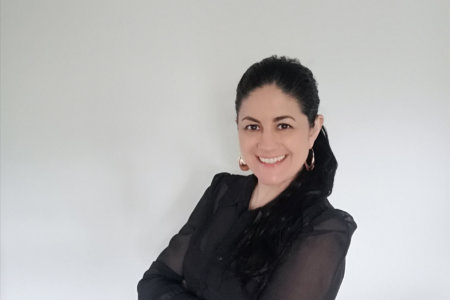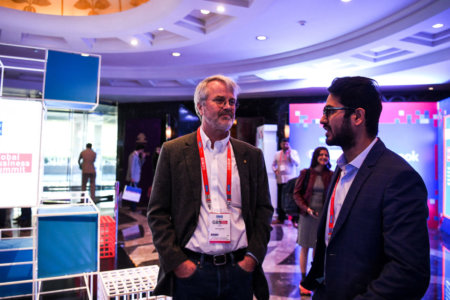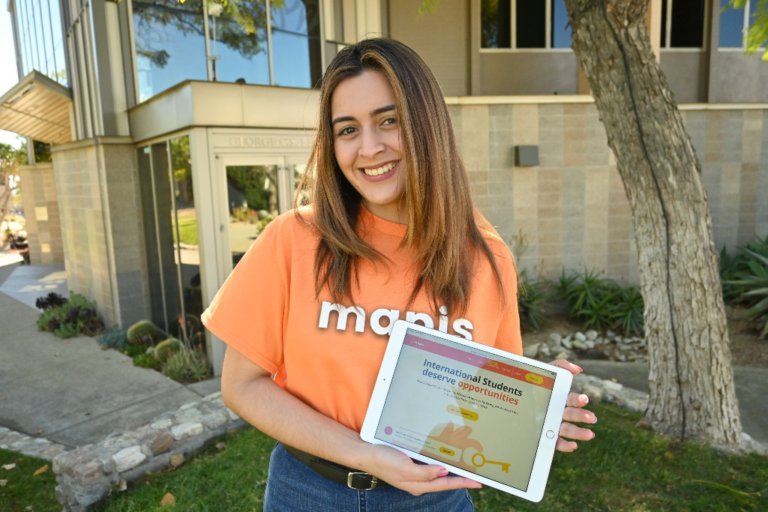
Diana Vicezar Torres was not deterred by the pandemic. Although the Paraguayan could not attend Pitzer College in person, she strove to connect with her classmates from around the world — and exposed her to one of the biggest problems international students face today.
Good jobs are hard to come by if you’re not local — that’s what Torres found out from talking with 100 students from more than 30 different countries.
Yet, it need not be. Torres thought if there was a one-stop platform for internships, fellowships, and entry-level job opportunities on an F-1 student visa, it’ll be easier for international students — so she built it.
“Mapis“ aims to be a “map” for international students. Using the knowledge and experience gained as a Product Design Intern at Meta, Torres made sure the platform not only listed good jobs and internships at companies that sponsor work visas, but also guides students on career development topics like writing a resume, drafting a cover letter, and how to network with recruiters.
This cognitive science major may have lived her dream of working in a company that powers Facebook, Instagram, and WhatsApp, but she’s prouder still of the impact she generates with Mapis. We caught up with her to learn more about her extraordinary journey:
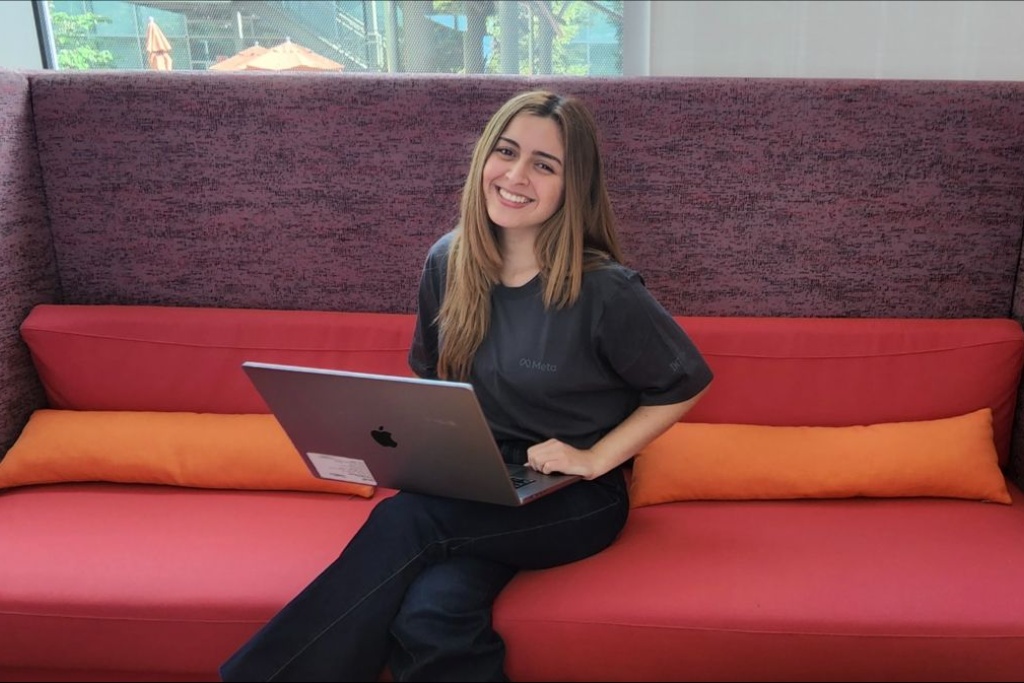
Torres is also an experienced community organizer, advocate, entrepreneur and technologist with a passion for building projects and products to solve pressing issues in underprivileged communities. Source: Diana Vicezar Torres/LinkedIn
What sparked your interest in creating a career platform for international students?
During the summer of 2020, I spent time connecting with other international students in preparation for my first semester at Pitzer College. From May 2020 to Jan. 2021, I chatted with over 100 students studying in the US.
In these conversations, a common topic was the stress and anxiety they experienced during their internship application process and the lack of professional development resources available in schools. Upon hearing this, I read up on the support available to international students applying for internships and jobs in the US.
Through months of research and follow-up conversations with these students, I confirmed the problem was the lack of career exploration resources for international students. Hence, I came up with the idea to create a platform to gather all the opportunities available to this group of students and support them as they explore their career options.
Tell us your background as an international student.
I was born and raised in Paraguay. I first came to the US when I was 17 to represent Paraguay as Youth Ambassador in a State Department leadership programme. After graduating from high school and earning a Baccalaureate in Computer Science in 2018, I took a gap year to focus on the application process for colleges and universities in the US.
In early 2020, I secured a full scholarship to Pitzer College and was very excited to move to California later that year. Unfortunately, COVID-19 happened, and I did my first year of college online. Fortunately, when the situation improved, I managed to move to campus in the fall of 2021.
Currently, I am a junior studying Cognitive Science with a focus on Computer Science and a minor in Data Science.
How did the idea of Mapis come about?
Mapis was the product to solve the problem. It is a platform where international students can find internships and entry-level opportunities at companies that sponsor work visas. Mapis also guides students on career development topics like writing a resume, drafting a cover letter, and how to network with recruiters.
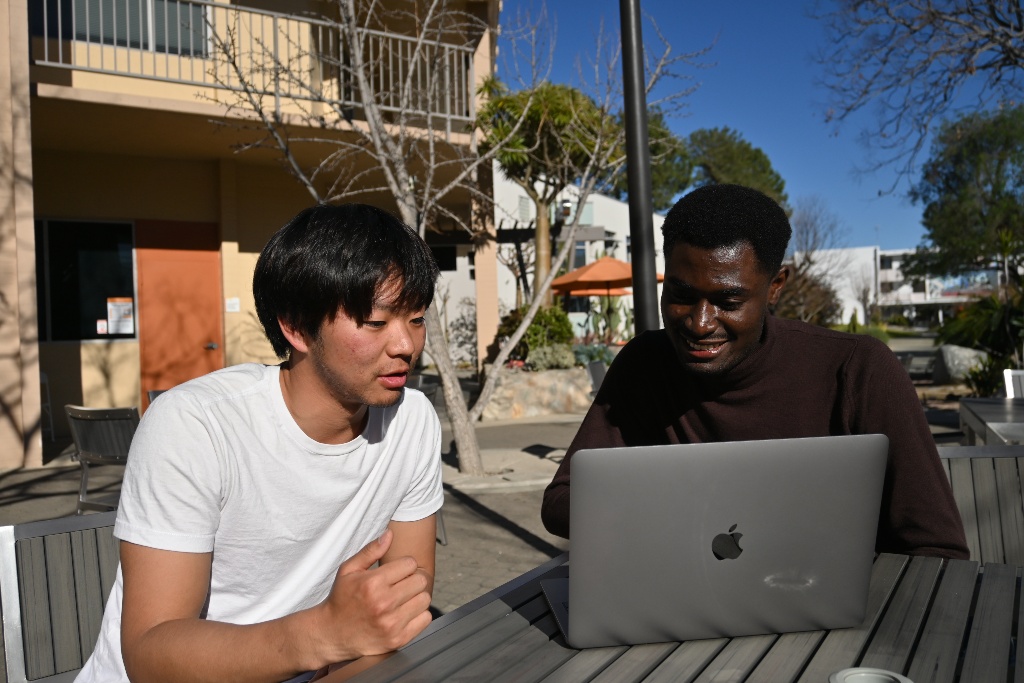
In an interview with Forbes, Torres revealed that Mapis shared more than 1,000 professional opportunities (internships, fellowships, entry-level jobs, exploratory programs, and conferences) in its opportunities board, helped over 70 students apply to their dream jobs and internships through one-on-one advising sessions, and hosted virtual events with speakers from top US companies. Source: Diana Vicezar Torres
What was the process of setting up Mapis like?
I conducted user interviews with international students as I wanted to know their demands for the platform. I also built the platform within 25 days while working part-time since it would be easier to refine the app through user feedback.
On Feb. 22, I launched the closed beta version to international students studying at colleges, universities, community colleges, vocational, and technical schools in the US. We currently have more than 150 active users in the closed beta stage, with students coming from over 30 states.
How did you balance your work at Mapis and college?
When I started studying in college, I did not think I would be able to work on a project on the side. Apart from attending classes, I am a Student Engagement Advocate for Pitzer College, a University Placement Mentor for the Latin American Leadership Academy, and a Paraguayan Delegate for Youth4Climate: Powering Action (a global initiative co-led by the Government of Italy and the United Nations Development Programme).
Working on Mapis has shown me that it is possible to juggle your studies and extracurricular activities with a side hustle if you are passionate about working on an idea.

With the open beta, Torres hopes Mapis will help to secure more good jobs for international students. Source: Diana Vicezar Torres
What’s in store for Mapis in the coming months?
In the coming weeks, we will launch our open beta, which focuses on speeding up the process of searching for internships and job opportunities in the US. With the support and feedback we receive from the international community, I hope we can help secure more good jobs for international students as they bring a lot of value to companies and organisations in this country.
Do you have any advice for students who want to work on their side-project while studying abroad?
Prioritise your physical and mental health. When we are too focused on work or academics, we tend to forget to take care of ourselves. No matter what you are working on, ensure you have plenty of free time to socialise on campus. Keep in mind to do what you love and enjoy the whole experience.








